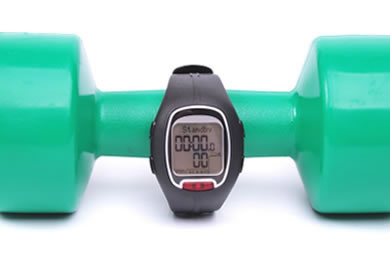|
Protein supplementation is, and has been, all the rage in gyms across the globe for some time now, especially for those looking to build lean body mass. There is a misconception that if one increases his/her protein consumption he/she can build muscle mass at a much faster rate. In all reality it isn’t the amount of protein one consumes that builds lean body mass, but the breakdown and repairing of the muscle fibers from resistant training that does. Excess protein consumption will not transform you into a lean mean fighting machine. If you eat more than your body needs it does precisely the same thing if you eat too many fats and carbohydrates, the excess will be stored as fat. However, protein is important as it helps with muscle repair and recovery, especially after a hard workout. But do we really need the fancy supplements that I see the body builders downing at the end of a strenuous workout? Studies have shown a simple cup of low-fat chocolate milk can provide the same benefits to replenishing glycogen stores and repairing muscle damage as consuming a more expensive protein drink. In a recent report published in the July 2010 edition of Consumer Reports, results from testing these supplements may have you rethinking your choice as well. Consumer Reports had an outside laboratory conduct testing on 15 popular protein supplements in both ready-to-drink and powder formulations and discovered that “at least one sample of each contained low levels of one or more of the following heavy metals: arsenic, cadmium, lead and mercury.” Three products-- EAS Myoplex Original Rich Dark Chocolate Shake, Muscle Milk Chocolate powder and Muscle Milk Vanilla Crème-- were the supplements found to have the highest levels of these toxic heavy metals. While this may not seem too alarming, consuming several of these supplements per day could well surpass the limits for these contaminants set forth by the U. S. Pharmacopeia (USP). The long-term effects of these heavy metals in our system have been known to cause organ damage. And because we are exposed to heavy metals in other areas of our lives, consuming a product that is not necessary for our health only increases our exposure to toxins we do not need. Last year when I began training for my first marathon I worked with a Sports Registered Dietitian to help me develop a nutrition program that would prepare me to take on the demands of training for a run of this distance. The first thing she told me was to get as much of my nutrition from ‘real’ foods and not supplements, including protein supplementation. She suggested that I eat egg whites, chicken, lean beef, fish, cottage cheese, tofu, nuts and nut butters. Surprisingly, this was not difficult to do as long as I planned my meals well in advance. I will confess I have been known to use whey protein and Muscle Milk when I felt I was running low on protein. There is something about throwing in a scoop of whey protein into a blender, mixing in a little water, ice, bananas, strawberries and blueberries and voila, I was good to go. However, after reading this report, I am having second thoughts about using protein supplements. I think this is one area where the risks far outweigh the benefits, especially since I can get my protein from natural sources. Do you use protein supplements? If so, do findings like the one from Consumer Reports cause you to think twice before consuming them? |
More From SparkPeople
|















